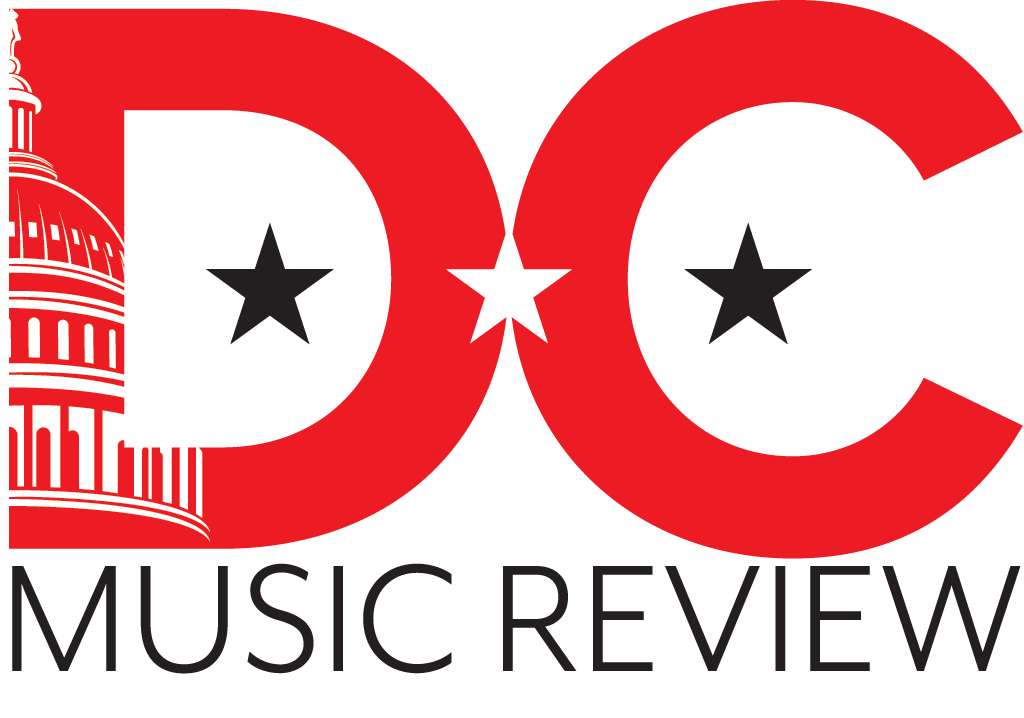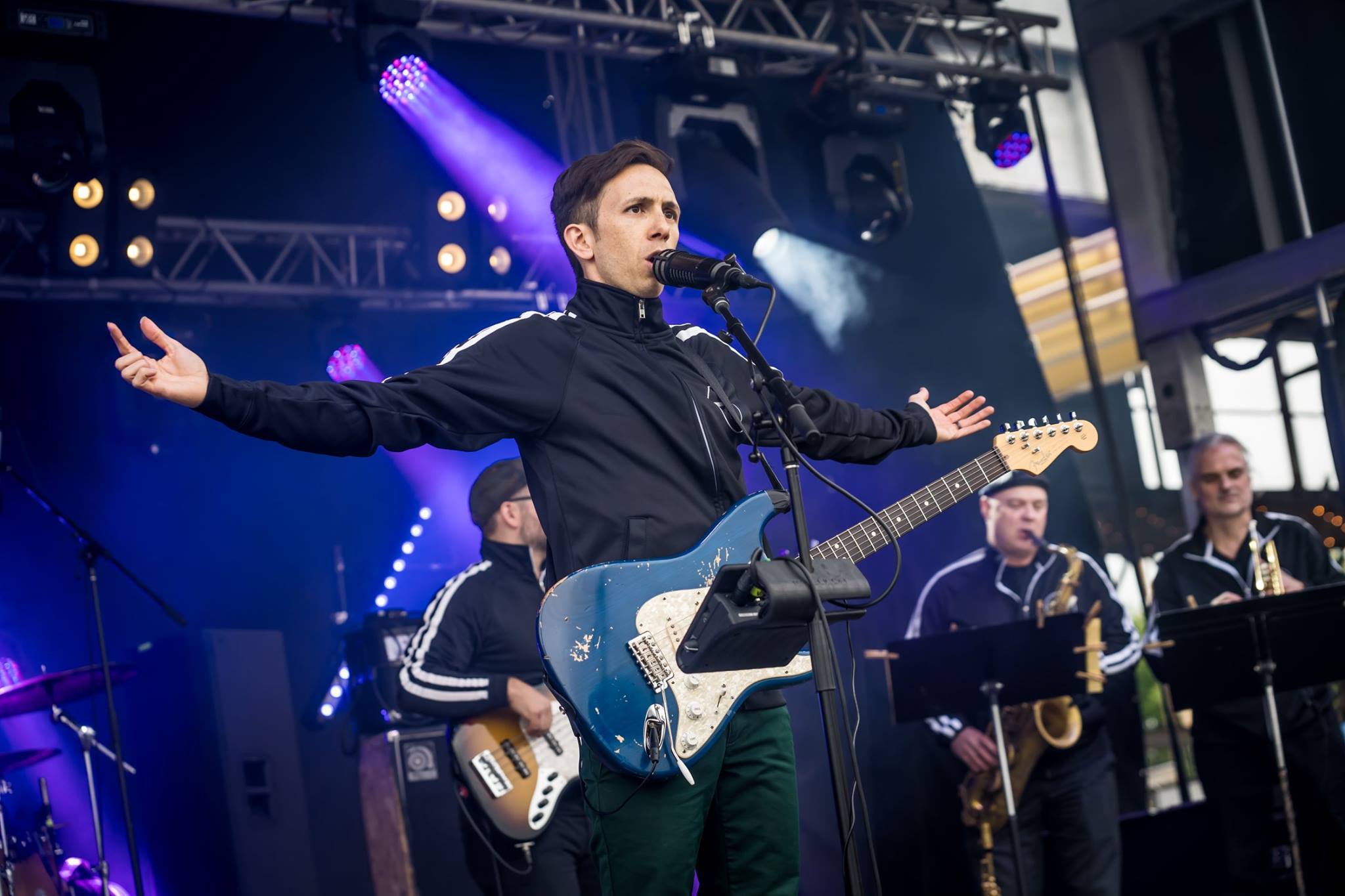Karin McLaughlin: Cory thanks for the time. What I want to do is talk a little bit about being a solo artist, Vulfpeck history and then I like to kind of get into just who you are as a person musically and kind of see where it goes. So without any further explanation - let’s give people who may not be familiar, or may not be as familiar with you as a solo artist, a background of kind of your musical history if you could.
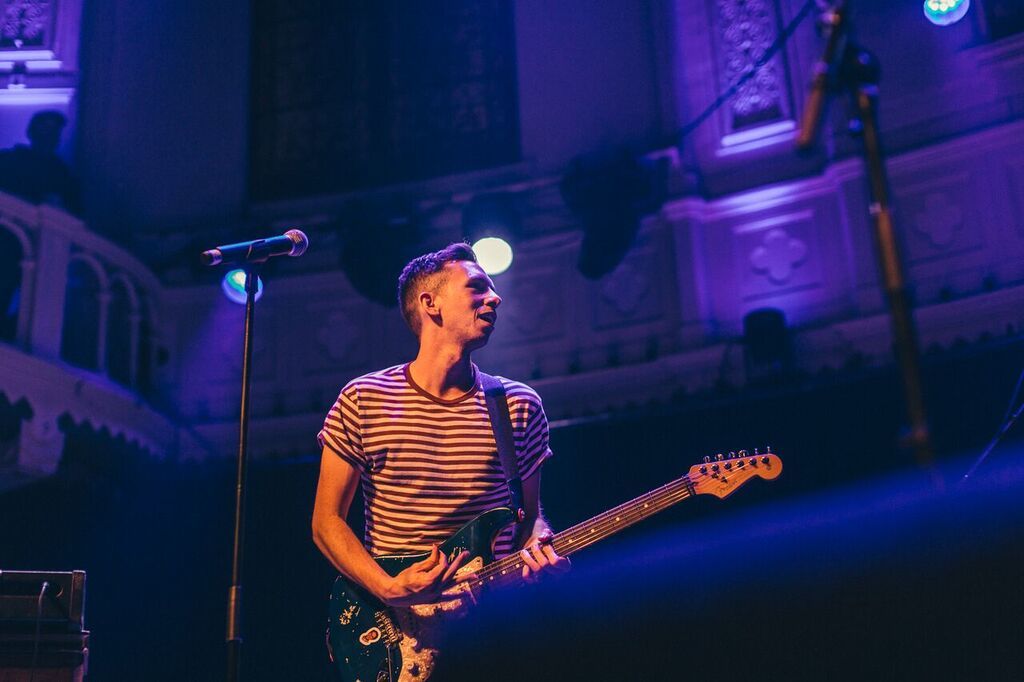
Cory Wong (Photo Credit: Dara Munis)
Cory Wong: Yeah, so I am a guitar player who does guitar centered music. By that, I don’t mean Guitar Center music because Guitar Center music is like 'Sweet Child of Mine' and "Back in Black', stuff that you would hear in Guitar Center. (laughs). I mean guitar centric music, that’s the right phrase. I have been playing in the band Vulfpeck for the last several years and doing the funk and r&b thing. That is more of a band project - we do a lot of funk stuff, some stuff is with singers, some stuff is with other collaborators – but with my solo project, it's very similar to Vulfpeck, except for it’s me as the lead voice throughout the majority of the songs. Whether that be me on guitar and as a writer, or also working with other collaborators, but having to do with the writing and producing all of my own records. So some of the stuff feels or sounds like Vulfpeck records but it's just more centered around me, I guess.
KM: Got it. And I also want to touch a little bit on your musical upbringing, because I read about you attending McNally Smith College of Music and what you started out hoping to go to school for and what you came out, kind of, as your end product or goal and how you switched gears while you were in that situation.
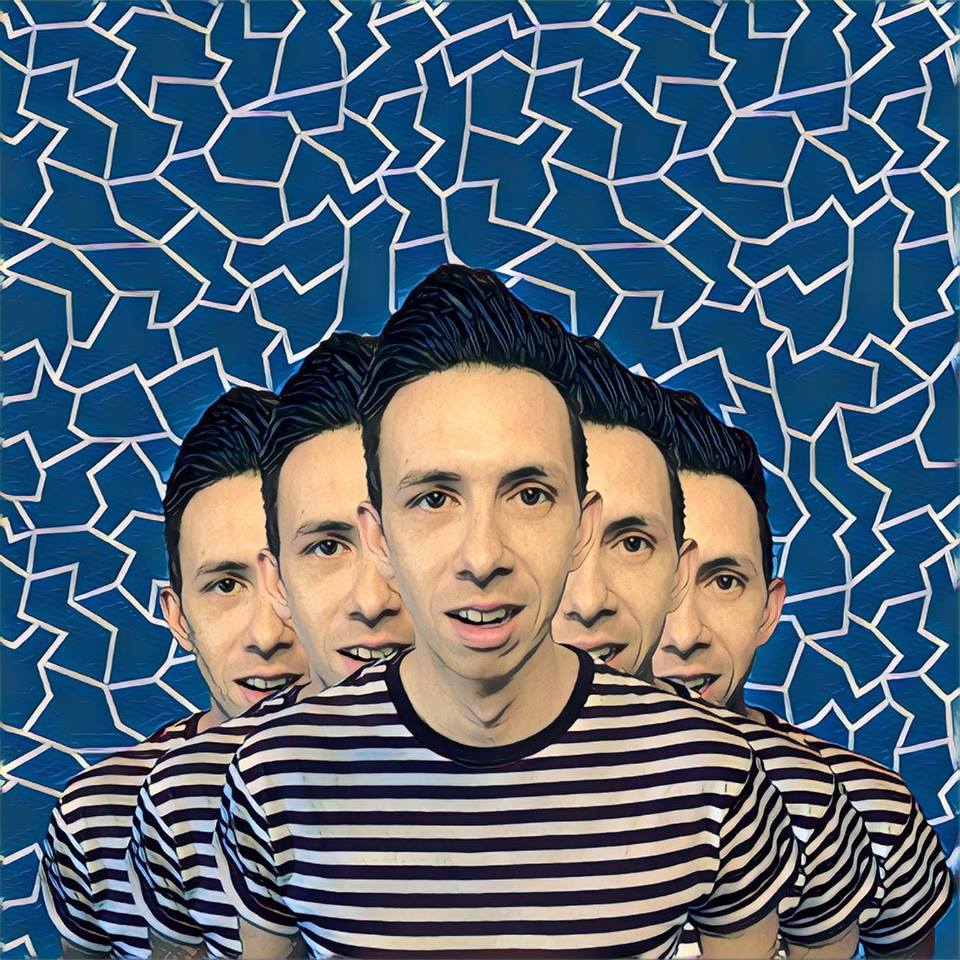
The many faces of Cory Wong (Courtesy: Cory Wong's Facebook Page)
CW: Sure. Well, when I first started Music College, it was one of those things where right away, I just took the leap and I went in for it. I went in for it committing that music was going to be my life and my career, knowing that it was my calling and passion in life - what I was supposed to be doing and am supposed to be doing. That being said, I didn't fully understand or have a fully realized vision of what that was. So when I first started Music College, it was ‘I want to be the best musician that I can be right now and I want to be able to make a living as an artist’ that is, playing my guitar. I didn't quite know how to do that other than, I learned that Broadway musicians make good money playing in a paid orchestra, I could make money teaching music, or I could make money recording on other people's records. But I wasn't totally sure what it might look like for me to be an artist myself and what that might look like for me to be a part of a band that got successful like Vulfpeck. It wasn't until after college that I really started to discover my own voice as my instrument or discover my voice as a writer. Of course, I've been developing that and working on that, honing in on my craft. What I wasn’t as certain of was how to hone my voice as an artist and who I am musically and what I want to share with the world beyond just the music. The main thing for me is, what am I trying to point my light to with my music? Over the last several years, it's just been finding that it's about joy and positive energy and a positive outlook on life. That sort of thing really helped guide me in my artistic voice on how to help people to leave feeling great after they come to one of my shows, or, after they listen to my record, just feel like ‘Oh, wow, I feel really good’ or ‘That makes me happy’, ‘Something about that music brings positivity to me’. To me, that's been my thing, rather than when I was in college and it was all about how do I just hone my craft as a player. Now, I've been starting to develop my voice as an artist and my voice as a person and what I want to say through my music.
KM: Where along the way did you, either figure out or start picking up, this crazy ability that you have to finger pick with what seems like a rubber finger/wrist type deal? I mean, I've never seen anything quite like it. How did you either figure out that you could do it or start to do it and figure out you could be really, really good at it? Where did that come along in your musical journey?
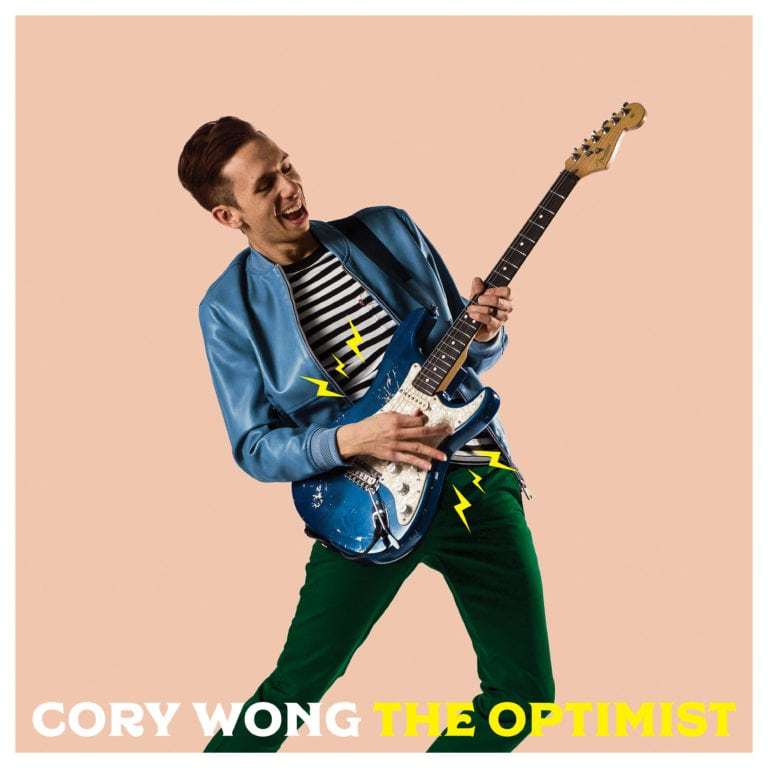
The Optimist - Released August 17, 2018 - Click Image to Pre-Order the album.
CW: That’s actually kind of a funny thing because when I was in college my teachers all told me my right hand technique was horrible (laughs). And by technical standards, my right hand technique is not amazing. You learn the by the book way to play the guitar and ‘hold the pick with your finger bent’ and ‘make sure the pick is at this angle’. I break all those rules with the way that I play. I spent years trying to play the “right way” but it just never felt right. I would practice for hours and wonder, ‘Why is this so painful?’ I mean, not painful, painful but just ‘Why does this not feel natural?’ I could play like this and I can do it the “correct way” or whatever you want to call it, and I can play great that way - or I can play convincingly that way I should say - it sounds fine, but when I play and I listened back, it doesn't feel like what I'm really trying to say, it doesn't really feel like me. When I listen to myself playing with some weird technique that I learned and that I really had to practice, it sounds contrived. What I ended up realizing was, you know what, screw it! I'm going to play the way that feels most natural to me. The way that just feels like, when I listen back, that’s what I want to sound like. To be honest, it was maybe like three years ago, four years ago, when I finally started to have that revelation and allowed myself - I gave myself permission and license or whatever want to call it - to play the way that I play. What I noticed was that, not only was it moving me more while I was playing that way, but other people were more moved by my playing when I just played like me, and when I sounded like me, when I just played the way that came natural to me. It was fun - the hero's journey (laughs) of guitar technique to discover, ‘Wow, don't try to force it, just do what feels good to you’. Of course, you have to challenge yourself and make yourself more vulnerable by taking risks and chances, but do it in a way that feels right to you. And I guess I'm speaking to you right now but I'm talking to myself (laughs) in my inner conversations. It's just, I’ve been around the horn on that journey and finally it's freeing that now, that’s the thing that people talk about when it comes to me is the right hand technique. Like, ‘Whoa this guy's got the most insane right hand technique’ or ‘He's the best rhythm guitarist with the best right hand technique in funk right now’. It makes me think, ‘Whoa! I can’t believe people are saying that!’
KM: Have you ever gone back to your teachers and said, ‘Ha ha, see what I did?!’ (laughs)
CW: (laughs) Yeah, it’s just weird -my technique is so unorthodox, but it feels so natural and it just sounds like me when I do it, I don't know.
KM: Another thing that you do, not only with the unique finger picking type of technique, is you also bring a different kind of guitar to the forefront of the stage where mainly when we see a lead guitar, it's played very differently. How did you kind of figure out that that was going to work well with Vulfpeck, you know, as a sound and as just as a band. Having them, not necessarily allow you to, but letting you shine in that way? Is that something that came up very early and you were like, ‘This is how I do it’? Or did it develop over time and then other members were like ‘Yeah, dude, keep rockin that!’
CW: To be honest, it's still developing and it will always be developing. So I feel like I’ve landed in the realm, on the right planet of what I'm supposed to be doing. Really with Vulfpeck, it has to do with Jack (Stratton) as a producer, bandleader and visionary. He really is the one who encouraged me and saw and was able to pinpoint what was unique about my playing and really help nurture that part of who I am as a musician. He's has an incredible visionary and a total producer/bandleader mindset of that sort of thing. It's kind of funny because Joe Dart is lead instrument, the bass is the lead instrument. To me, he's the star of the show, let there be no question about it and rightfully so, because he's incredibly talented. Also because of that, I think Jack saw the way that I play as something that would fit with that contrastingly and also very effectively. The bass is the main riff and something that people will sing along to, and the guitar, in the way that I play it, can play a really interesting and cool role to compliment it and to also add to it, rather than just play the same thing as him. It's finding different parts and orchestrating it. Jack is able to orchestrate the way that each of us play to really make something effective and really cool to play.
KM: So, you've actually are already done two albums as a solo artist, right? With the third coming out next Friday?
CW: Yes, on the 17th.
KM: So how is this third album different from the other two? If at all?
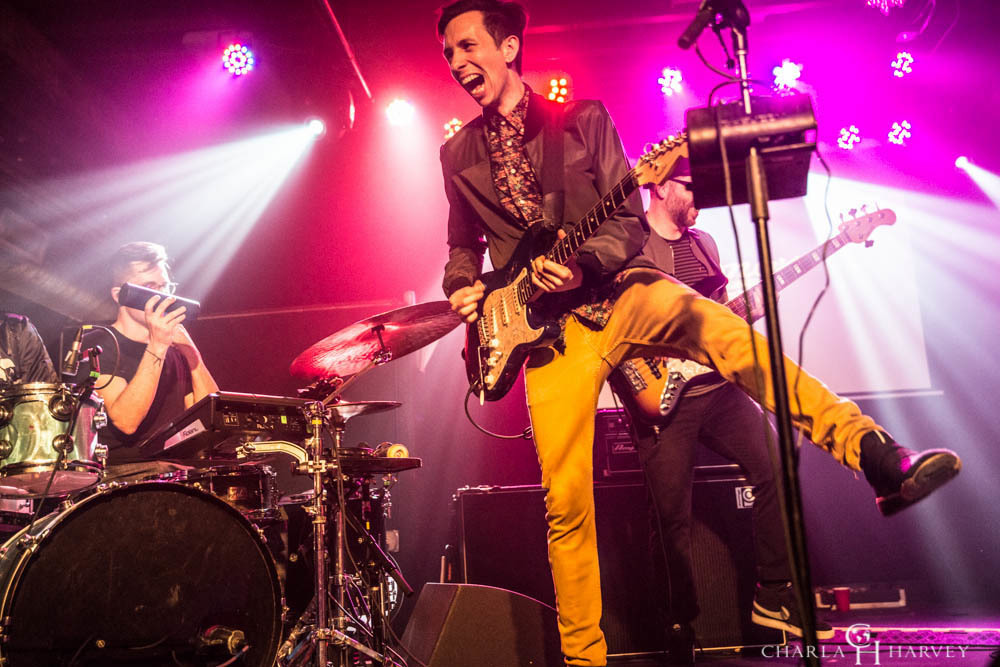
Cory Wong (Photo Credit: Charla Harvey)
CW: I think it's different because, like I said, I'm continually evolving and changing and growing as an artist and as a person. With this record, I focus a lot more on - well, it's called The Opposite and just really sharing that message and just the fun and the energy, which of course, I do in my other records, but with this one it's just has a little bit of a lighter, fun feel to it. Also, my approach to writing was a little bit different on it to where it was a little more about instincts. A lot of my other records, it was go in the studio for, you know, two straight weeks and just track stuff. With this, it was well, Vulfpeck’s not on tour for the next three weeks, I just got home - there was something about that. Sometimes people will get really tired after being on the road for three weeks and being gone, working forever. For me, I got really energized and I got a lot of energy and creative juice from those tours and those recording sessions when I got home, I just decided, ‘Hey, I'm going to do a recording session this week for a new record.’ ‘Do you have any material?’ ‘Well, not really, but I do have a bunch of voice memos from little song ideas that I started on the road. I'll just take those and develop them a little bit. Let's call it Thursday, we'll go into the studio and record.’ (laughs) What ended up happening was, I got a lot more of my instincts as a writer, and a producer, and a lot more instincts from the musicians that I collaborated with for these songs that turned out to have a really great energy and a really fun vibe to it.
KM: You've done solo projects, you've done band projects - besides what you mentioned earlier, where you're obviously the lead vocals on the solo album -what is it that you do as a solo artist that you don't really get to do when you're performing with other people?
CW: Well, as a solo artist, the good and the bad are kind of the same thing and that’s you get to make the decisions and have the responsibility. The good part about that is, I get my artistic vision, of course, with input and collaboration for my friends, but really, my personal vision for a musical statement that I want to make, or some message that I want to share through my stuff as the main thing rather than like a band thing, which is the combined efforts. That’s great, but with mine, it’s more guitar centric, music. It's also all songs that I wrote. Music that I put together. I produced the record. Then again, like I said, the other side of the coin, is that the responsibility is all on me. I assume all the risk and take the chances and if the show falls flat on its face, it’s me that has to deal with that or work with that.
KM: There's nobody else to blame (laughs)

Corey Wong with Vulfpeck at the Paradiso, Amsterdam. (Photo: Dara Munnis)
CW: Right, which is totally fine. I love that. I love excitement and I love the risk taking that it brings me. I don't like to have things too planned out because again, then it feels contrived. So I have a pretty good outline of what I do for my shows, but I love to be able to feel the energy of the room and of the music and the players that are happening in that moment to really bring something special and unique to each show.
KM: How did you originally hook up with Vulfpeck?
CW: I'm the only person in the group that did not go to University of Michigan. Those guys all met at University of Michigan and they came and saw one of my bands that I was playing with in Minneapolis when they were in town and came up and introduced themselves, we became friends, we started jamming together. That was maybe five years ago and within a year we were just we became really close friends.
KM: So it started very natural.
CW: Yeah, it’s funny. It definitely feels and felt natural, the friendship. I mean, I think maybe that's what makes it work the most is that the friendship, it feels just as though we have a connection, a musical connection. So yeah everything - the friendship felt very natural and the music felt very natural so it works.
KM:Yeah and you guys have a great onstage dynamic. A bunch of friends and I went to Sweetwater 420fest and we got to see you guys. There were a couple of people I was with that had never seen Vulfpeck - you know, had heard maybe a song or two but not really seen you guys live and everyone left that show - I even heard random people as we were walking by talking about how much you guys killed it and how much fun it was to see you perform. It was like just kind of a party. You guys kind of make a party on stage and then bring everyone in the audience into it, so the dynamic is incredible that you guys have. I mean, as you said, they were together in college, or met in college, but then how you joined in and just kind of melded right in there.
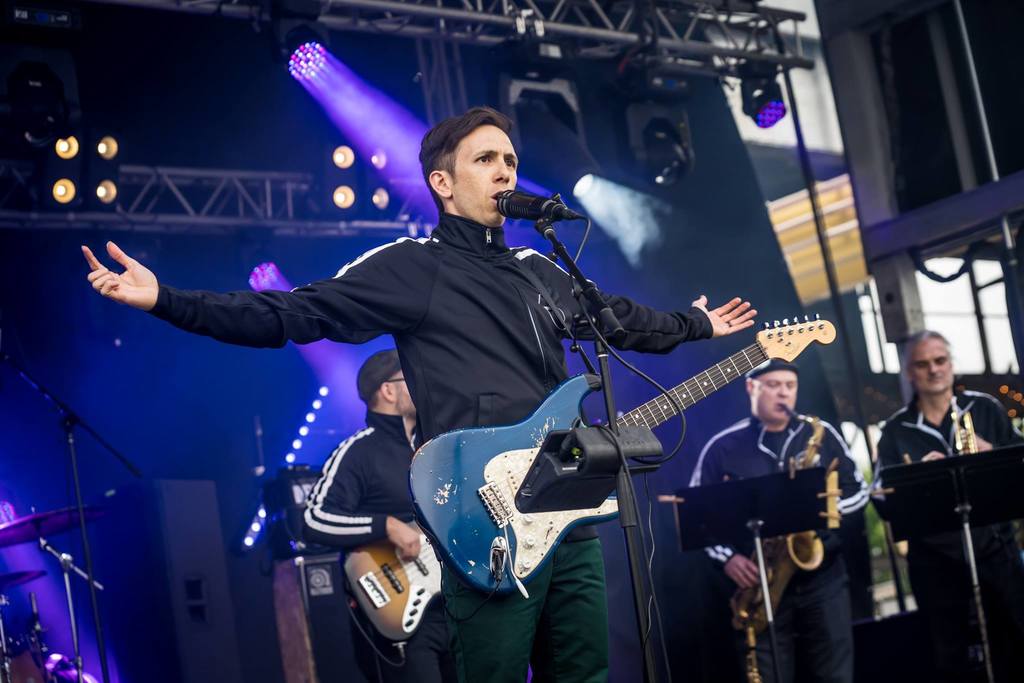
Cory Wong (Photo Credit: Tim McG)
CW: Yeah and that’s totally it, you nailed it. It’s just a fun party and we try to bring everybody along for the ride because that's what we enjoy out of being at concerts too. With my solo shows it’s very similar, but there's also a lot of parts of it that are very different, like the way that I execute the fun. Having a good time and involving everybody looks a little different than the way it looks with how Vulfpeck does it or Theo (Katzman) with his solo shows or Joey (Dart) and his solo shows. It’s fun and we’re all, obviously coming from the same circles, but whenever we do our solo shows we all approach it in a little bit of a different way which is fun.
KM: So you are doing the solo tour, and you’re actually going to be starting the tour before the album comes out. So how are you planning to celebrate next Friday when the album drops?
CW: Well, we’re going to be celebrating it on tour. Actually, the people at Jammin Java are gonna be the first people to be able to get the vinyl records, because I have a handful left. I sold pretty much all of them through my pre order which is up for about another week. So if there's any left, the first people who will get them are people who come to the first show of the tour. So we’ll just celebrate basically all week by being on the road, hanging with my buddies, playing music, playing songs from the new record and stuff from other records. There’s some other special guests that will be coming up and some nice surprises that people will enjoy. Yeah, I'll leave it at that.
KM: So, Cory, my last question is one I like to ask everybody, just to kind of, as I said in the beginning, to feel you out kind of as an artist and a music fan and a person in general. The music bucket list -is there anything on it that you have that you're trying to get crossed off maybe in the rest of 2018?
CW: That’s funny that you ask that because I just put out a video that's like three of my vulnerable goals that are kind of funny that I'd like to pull off at some point. One of them is collaborating with blues jazz saxophonist Dave Koz. It’s funny because we’re totally in different scenes, but at the same time, if you look at the original smooth jazz genre with like George Benson, Grover Washington, all these guys, the spirit and feel of it is very similar to the Vulfpecks and the Snarky Puppys of today. It’s kind of interesting that the smooth jazz genre in general is kind of turned into something that's less than desirable for a lot of people my age and different other millennials. At the same time it's a genre that could be really fun to revitalize. I just thought like, ‘Wow, it'd be really cool to kind of add a new face to the funk and smooth jazz'. I mean smooth jazz is just instrumental r&b and funk, that's really all that it is. We just had a different name and in the last decade it has turned into something that like I said, doesn't seem very appealing to a lot of other millennials, like myself, but could be really fun if there were just a young energy and a different thing to it. So I’m kind of exploring that (laughs). I don't know, I'm not trying to be a smooth jazz artist, but it would be fun to collaborate with those guys because there's so many great players in that world. There's so much that the audience loves about music and just has a good time listening to music and that's very appealing to me. In a certain way, Vulfpeck is doing that sort of thing like George Benson and Grover Washington were doing during the origination of smooth jazz. I don't know, there’s something in there, some creative energy brewing within me, that I'm rolling right now with that.
KM: Ok, well, we'll keep our ears out for something along those lines. All right, well, Cory I wanna thank you so much for taking the time and look forward to the show on Tuesday at Jammin Java!
CW: Awesome. Thank you. Enjoy the rest of your day. All right.
To learn more about Cory Wong, please see his website or Facebook page.
Don't forget, Cory Wong will be performing at Jammin Java Tuesday, August 14, 2018. Be sure to see his performance.
Tuesday, August, 14, 2018
Doors: 7:00 PM
Show: 8:0x0 PM
$15 - General Admission
$25 - Premier Plus
